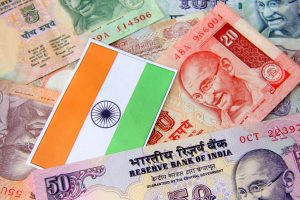India’s finance minister unveiled on Thursday a short-term budget to meet government expenditures until national elections are held by May, saying it will boost spending on infrastructure projects, build homes for poor villagers, and cut the fiscal deficit by reducing subsidies.
Nirmala Sitharaman announced plans to raise skills for young people and boost small and medium enterprises to create jobs. Prime Minister Narendra Modi’s government faces criticism for not creating enough jobs despite offering billions of dollars in subsidies to boost manufacturing.
National elections due by May have generated expectations of populist giveaways to woo voters. The short-term budget is mostly free of big-spending new programs.
Modi is leading the race, with his Hindu nationalist party expected to win a third straight term because of his immense popularity and a badly divided opposition led by the Congress party.
The short-term budget must be approved by Parliament. A full-year budget will be presented by the new government after it assumes power.
Sitharaman said the government plans to build 20 million affordable houses over the next five years if voted back to power, adding to the 30 million already built. The government allocated $145 billion for infrastructure projects in the short-term budget.
She said government policies would focus on the development and empowerment of the poor, farmers, youth, and women.
Sitharaman also announced the government will strengthen the electric vehicle ecosystem by supporting the manufacture of EVs and building charging stations, as well as encouraging a greater adoption of electric buses for public transport. She did not specify the cost or timeline for the project.
India expects that its economy will grow by about 7 percent during the next fiscal year despite global headwinds and geopolitical risks, and that it expanded by 7.3 percent this fiscal year, which ends on March 31. The International Monetary Fund expects India’s GDP to grow by 6.7 percent this financial year.
The Modi government’s budget last year totaled $550 billion and focused on ramping up capital spending to spur economic growth.
Sitharaman said India attracted $596 billion in foreign direct investment over the past nine years. She said the government is negotiating trade treaties with various countries to enable India to become a developed country by 2047.
Last year, India surpassed the United Kingdom to become the world’s fifth largest economy with a GDP of $3.7 trillion. The Modi government expects the economy to become the third largest in the next three years with a GDP of $5 trillion.

































